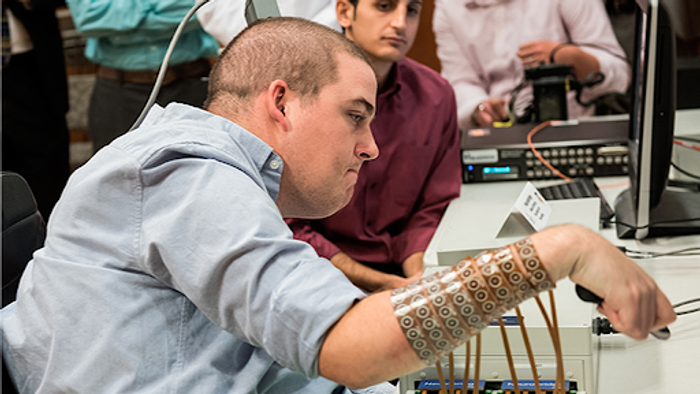|
Any new technology is only really truly useful if it is appropriated by the general public.
And, it becomes more deeply anchored in our societal and even cultural way of living when the users participate in the final design and refinement of its applications. That is even more the case with top-edge medical technologies, like brain-computer interfaces (BCI).
Most of the time, BCI involves implanting a chip inside the brain of a fully disabled patient to help that person to give commands to an external mechanical or digital device, like a computer, a wheelchair or a robotic arm. Such implants have now been used for more than a decade. And, thanks to a WIRED article, we just learnt that a man set a new record for wearing such a BCI : seven years and three months! A big advance, when one thinks that one of the risks of such implants is that they are considered as intruders by the biological tissues in the brain and rejected.
But now, people with an implanted BCI, more than just patients, want to become full actors in the field of scientific research that helped them. One of them, Ian Burkhart, as STAT news describes, has been wearing an implant since 2014 and created a group for the BCI community, The BCI Pioneers Coalition, led by its pioneering users to discuss the kinds of questions he had seven years ago when he was implanted. These include: How would he shower or sleep with the port sticking out from his skull? What would it be like trekking to and from the laboratory several days a week for the next few months, or years? And would he feel the device in his brain? The goal was also to serve more broadly as a forum to talk with others in the BCI community about more overarching but important ethical, commercial if not societal questions: who owns data extracted from someone’s brain? What is autonomy when some version of your thoughts are read into a circuit board? Is the goal restoration of movement, augmentation, or maybe enhancement? In what ways are patients allowed to use their BCI?
“A lot of these questions aren’t black and white,” Burkhart said to STAT. “They live in the grey area and they’re so nuanced that you have to have a bunch of different perspectives in order to really get anywhere that’s substantial.” Involving people most concerned by a technology in its development is not only wished for by the researchers working on it, it also should be a duty in every scientific endeavour.
- Olivier Dessibourg, GESDA
(EN)
|










